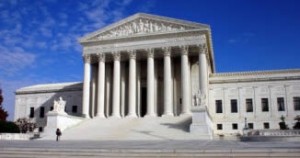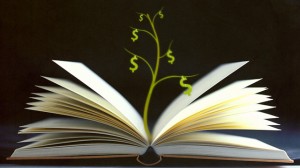 By now you’ve likely heard that the Supreme Court has ruled, in a 6-3 decision, in favor of immigrant scientist Supap Kirtsaeng in Kirtsaeng V. Wiley.
By now you’ve likely heard that the Supreme Court has ruled, in a 6-3 decision, in favor of immigrant scientist Supap Kirtsaeng in Kirtsaeng V. Wiley.
In what’s being heralded as a win for consumers and libraries, and a loss for publishers, the SCOTUS overturned a previous ruling against Kirtsaeng, who had been buying textbooks printed (legally) abroad—where they cost significantly less than they do in, say, the United States—and then reselling them in the U.S. on eBay and turning a handsome profit in the process.
In a statement yesterday, Wiley’s President & CEO Stephen M. Smith wrote: “We are disappointed that the U.S. Supreme Court has decided in favor of Supap Kirtsaeng and overturned the Second Circuit’s ruling. It is a loss for the U.S. economy, and students and authors in the U.S. and around the world.”
 In a separate statement, the American Library Association touted the ruling as a “total victory for libraries and their users,” as had the court overturned the “first sale” doctrine—which states that after someone has purchased a copyrighted work, they are free to lend, gift, rent and resell that work—it would have had deleterious consequences for lending institutions, as well as used-book sellers: “It is especially gratifying that Justice Breyer’s majority opinion focused on the considerable harm that the Second Circuit’s opinion would have caused libraries.”
In a separate statement, the American Library Association touted the ruling as a “total victory for libraries and their users,” as had the court overturned the “first sale” doctrine—which states that after someone has purchased a copyrighted work, they are free to lend, gift, rent and resell that work—it would have had deleterious consequences for lending institutions, as well as used-book sellers: “It is especially gratifying that Justice Breyer’s majority opinion focused on the considerable harm that the Second Circuit’s opinion would have caused libraries.”
Over at Forbes, Gary Shaprio, president and CEO of the Consumer Electronics Association, who some 30 years ago was involved in a similar legal battle focused on the VCR, writes, in a opinion piece that imagines the far-reaching implications of this decision beyond publishing:
“Just as the survival of the first-sale doctrine in 1985 allowed the home video market to thrive, the Supreme Court’s decision Tuesday could have potentially significant applications beyond just textbooks or, more broadly, digital content. If the reasoning is extended to pharmaceuticals, for example, Americans would no longer be the chumps who pay the highest prices in the world simply because they’re not allowed to shop overseas where prices are lower. Buying the same drugs cheaper overseas could dramatically reduce our burdensome health care costs.”
What’s your take? Victory for consumers? Defeat for publishers? Or something a little more nuanced?
* This article originally appeared on the website of Book Business magazine.

































I don’t think there’s any reason to try to read more into the decision than it says. It’s a straightforward decision that basically says that practices that have been permitted for more than a century are still permitted.
The decision merely reaffirmed the status quo. No new ground was broken. Had it gone the other way, that would’ve been a big deal.
Had Wiley prevailed, that would have been new ground. This is still about legally obtained copies of a copyrighted work that are in a fixed format (paper in this case). Whether the doctrine of first sale can be successfully applied to digital objects such as eBooks and eTextbooks remains to be seen. Apparently, Amazon and Apple are hedging their bets with patents for the transfer of digital objects from one person to another. ReDigi might be the first test case.
Textbook publishers are also hedging their bets but in a different way. The EDUCAUSE/Internet2 eTextbook pilot (https://docs.google.com/document/d/11TDTJBja1rcXGCk4pRK4llLBsmUbWLkWEHVLfFJ570U/edit?pli=1) now in progress illustrates textbook publisher thinking. Not only are they digitizing traditional textbook content but they are also placing that content into proprietary containers (Learning Management Systems or Content Management Systems), adding analytics-driven features and dealing directly with institutions who will guarantee that unit sales will equal enrollment. There will be no secondary (used) market for these packages of “learning content.” There may not be any digital textbooks.
If book publishers and distributors don’t want legally-printed and cheaper foreign copies to destroy their profits, they will up the price of the foreign editions so they are in parity to the US edition.
That means no one in countries where poverty is high will be able to afford these textbooks.
I would not call that a victory for anyone.
And Frank is right. This has nothing to do with digital first sale.